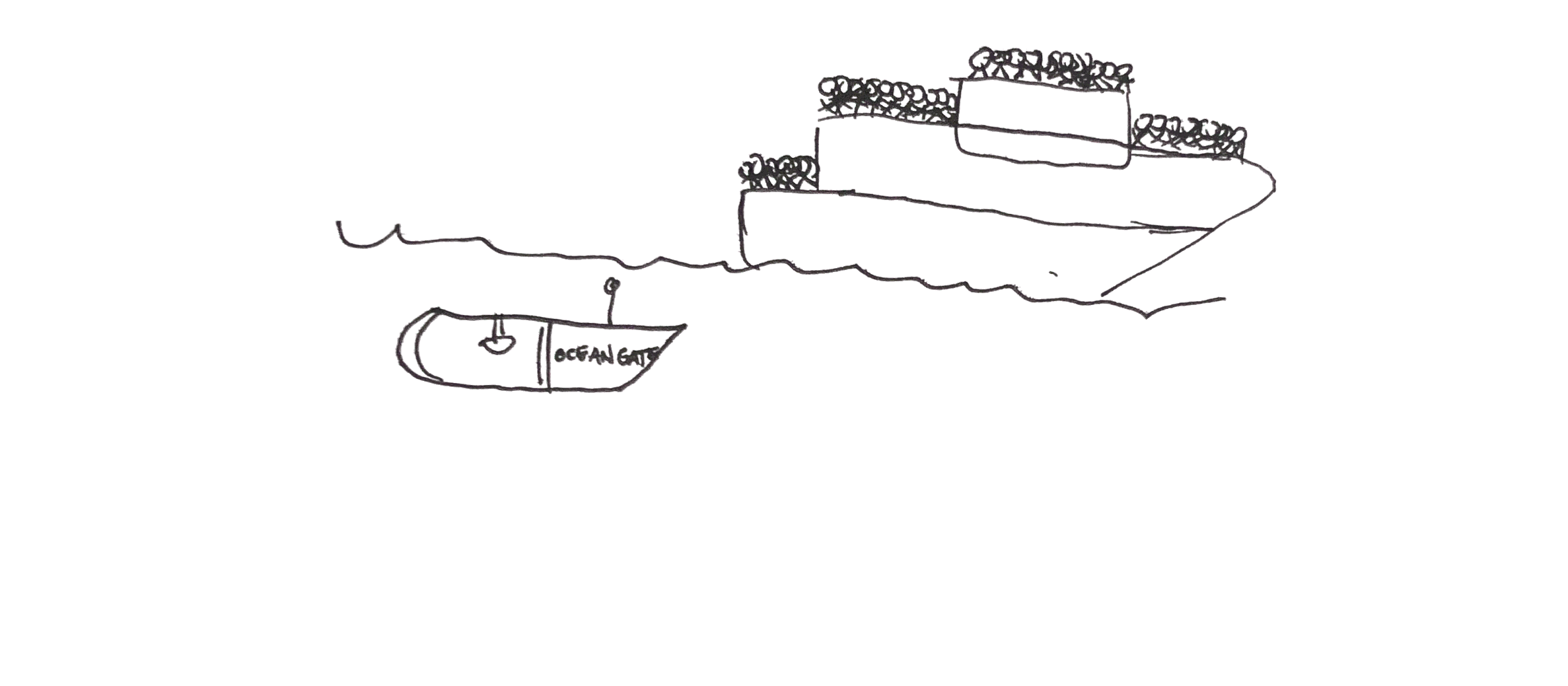VESSEL ONE
Five people paid $250,000 apiece to die next to the Titanic.
James Cameron (blockbuster film director, est. net worth >$700M) explained the “catastrophic implosion” of the OceanGate submersible to Anderson Cooper (Vanderbilt heir, est. net worth >$100M) on CNN:
“The only scenario that I could come up with in my mind that could account for that was an implosion,” he told Cooper. “A shockwave event so powerful that it actually took out a secondary system that has its own pressure vessel and its own battery power supply which is the transponder that the ship uses to track where the sub is.”
He said false-hopes kept getting dangled as search teams looked for the missing passengers over the following days.
“I watched over the ensuing days this whole sort of everybody-running-around-with-their-hair-on-fire search, knowing full well that it was futile, hoping against hope that I was wrong but knowing in my bones that I wasn’t,” Cameron told Cooper.
“I encouraged all of them to raise a glass in their honor on Monday,” Cameron said.
Why? Because they’re no longer competing for our resources or leaving a trail of waste? They’re not heroes. All they did was pay a lot of money to sit in the crumple zone. To go where lots of people went before, and where no one wanted to go in the first place. What kind of moron willingly pays $250,000 to sit in a tiny box of
questionable technology that is
bolted shut from the outside and sunk more than 2 miles beneath the surface of the ocean
just to watch a screen that shows the exact same images you can see in your living room? Of a wreck whose very existence is testimony to what happens when we ignore the reality of the world around us?
I knew someone was going to say it, and it took less than a minute into the lead story: “They died doing something they loved.” Like that matters. Plenty of people love doing heroin.
Whatever your jam, whatever, er, floats your boat, it’s your responsibility to mitigate risk and provide for the emotional well-being of the people who love you and rely on you, the people who will truly miss you when you’re gone. You owe your loved ones the minimal service of not dying from stupidity.
Besides, Cameron was wrong.
Not everyone wanted to be there. Suleman Dawood, the son of Pakistani businessman Shahzada Dawood, was “terrified” about the trip, but the 19-year-old ended up on the submersible because the trip was Father’s Day weekend and he wanted to please his dad.
They weren’t the only Pakistanis who died at sea last week. They were just the only ones most Americans saw on TV.
VESSEL TWO
Hundreds of Pakistani immigrants died when an overcrowded fishing trawler sank in the Mediterranean Sea on June 14.
According to the United Nations Migration Agency, approximately 750 men, women, and children were on board when the boat capsized.
The people on that boat paid Libyan smugglers about $8000 each to escape their lives in search of better ones.
I grew up in Southern California and I get it. Many friends and students have told me harrowing tales of how they paid
coyotes to get across the border.
So many people in so many places are desperately trying to escape war, persecution, climate change, and poverty.
EPILOGUE
There is a powerful lesson in this. None of the people on either vessel should have died in that time, place, and manner. They wouldn’t have been on those boats at all if people with means would just think enough of their fellow humans to willingly help people with less means.
If you have $250,000 laying around, and you’re thinking of spending it on the grownup version of an amusement park ride to look at the most famous oceanic disaster ever, which was caused by human arrogance and resulted in a horrible loss of life, use that money to help people in need. Give it directly to a person. Support a local nonprofit. Invest in a B corp or social entrepreneurship.
“The best and the worst are known to you, now.” – Charles Dickens, A Tale of Two Cities
Until we stop hurting ourselves, each other, and our planet, I’m rooting for the
orcas.

